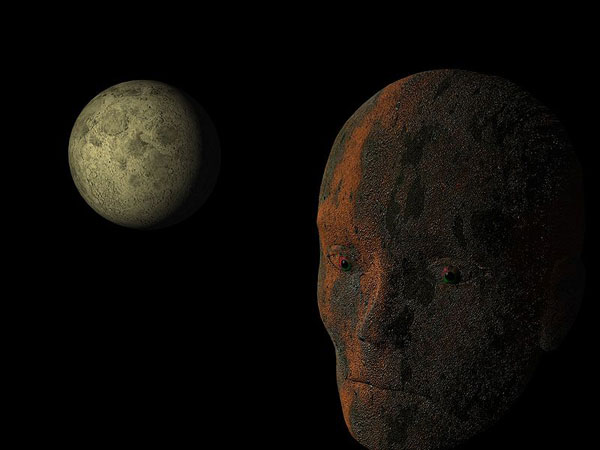
Space DNA can help find alien life on Earth
London, Nov 27: A unique space experiment has found that DNA has the capability to survive extreme conditions of space and re-entry into Earth's dense atmosphere - raising the possibility of finding extraterrestrial life.
During the experiment, small, double-stranded DNA molecules were applied to the outer shell of the payload section of a rocket.

After the launch, space flight, re-entry into Earth's atmosphere and landing, the plasmid DNA molecules were still found on all the application points on the rocket from the TEXUS-49 mission.
This was not the only surprise.
For the most part, the DNA salvaged was even still able to transfer genetic information to bacterial and connective tissue cells.
Some scientists believe that DNA could certainly reach us from outer space in extraterrestrial material made of dust and meteorites.
"The results show that space ships could also carry terrestrial DNA to their landing site. We need to have this under control in the search for extraterrestrial life," said lead researcher Oliver Ullrich from University of Zurich's Institute of Anatomy.
The experiment called DARE (DNA atmospheric re-entry experiment) resulted from a spontaneous idea.
Scientists Ullrich and Cora Thiel were conducting experiments on the TEXUS-49 mission to study the role of gravity in the regulation of gene expression in human cell.
They began to wonder whether the outer structure of the rocket might also be suitable for stability tests on so-called "biosignatures".
"Biosignatures are molecules that can prove the existence of past or present extraterrestrial life," Thiel said.
So the two researchers launched a small second mission at the European rocket station Esrange in Kiruna, an arctic town in northern Sweden.
The quickly conceived additional experiment was originally supposed to be a pretest to check the stability of biomarkers during spaceflight and re-entry into the atmosphere.
"We were completely surprised to find so much intact and functionally active DNA," the duo concluded.
IANS


 Click it and Unblock the Notifications
Click it and Unblock the Notifications

































